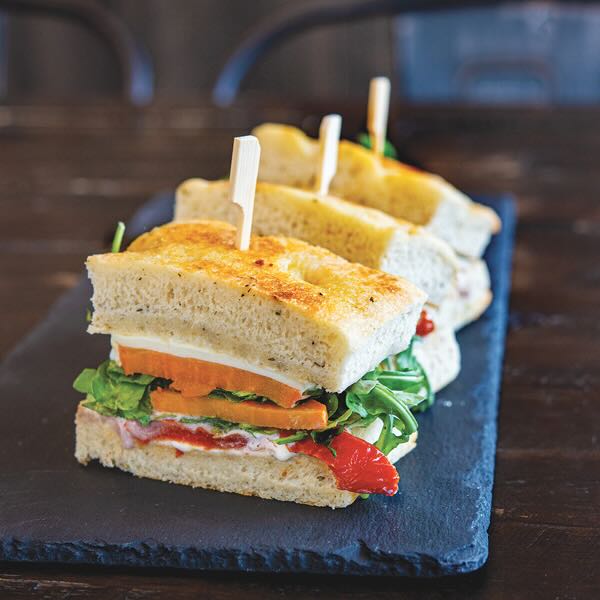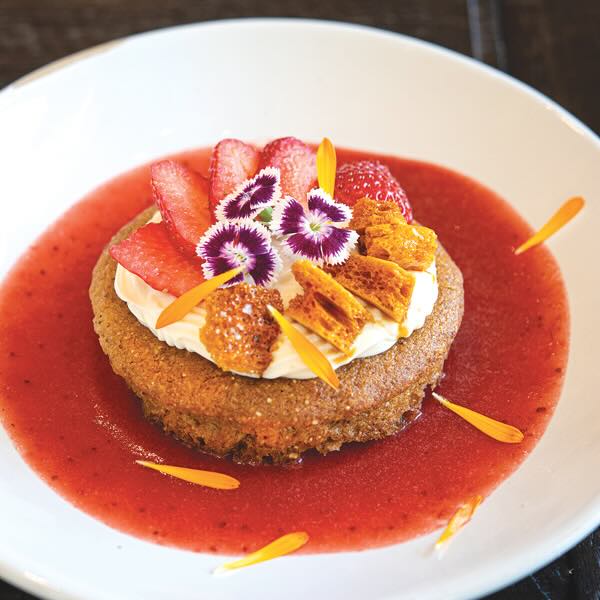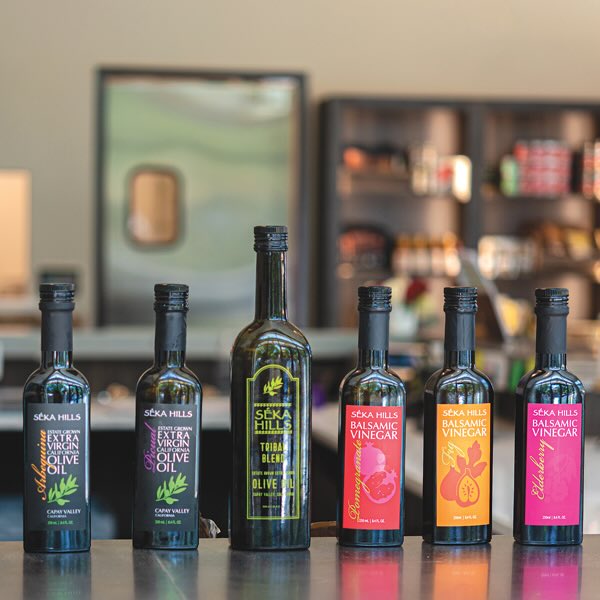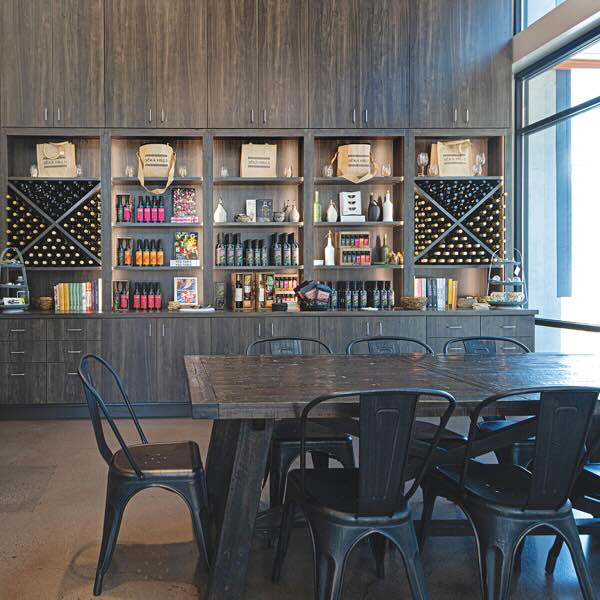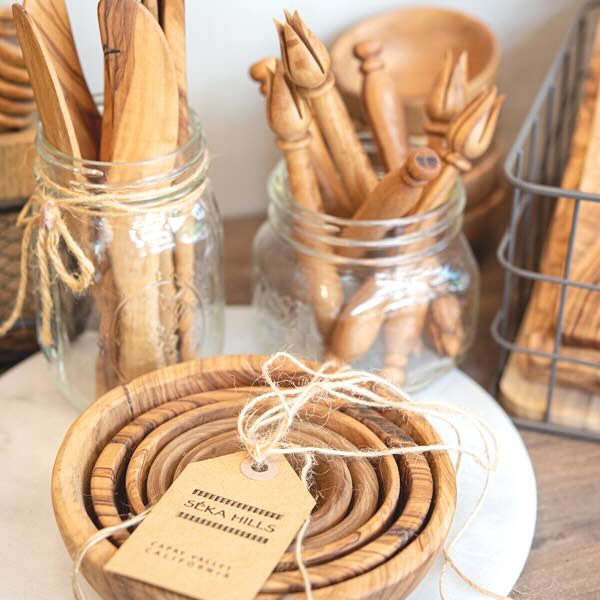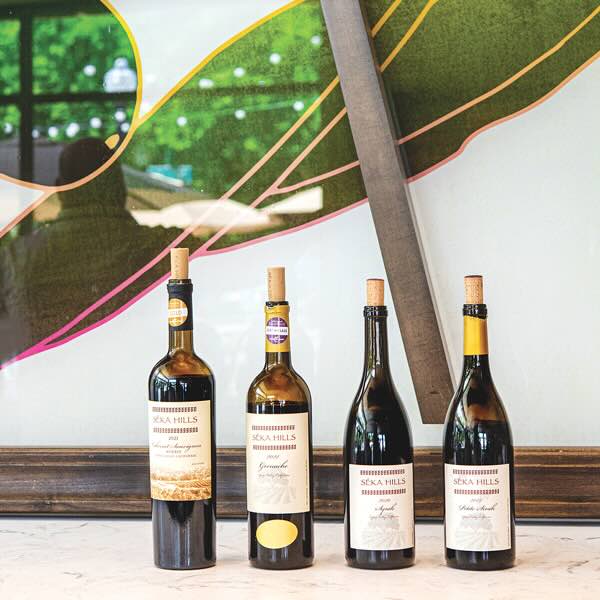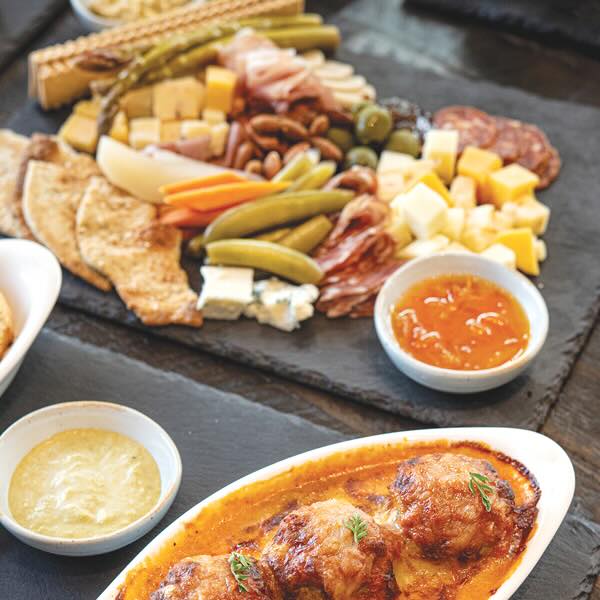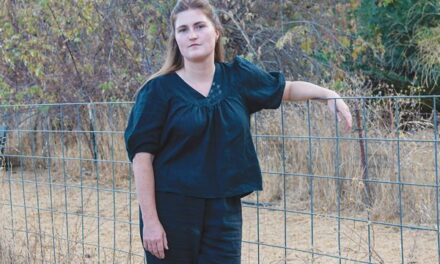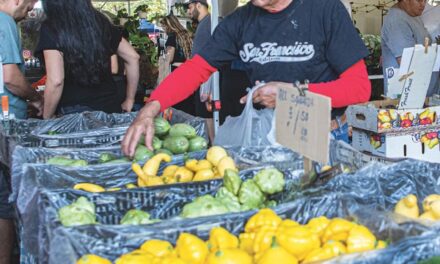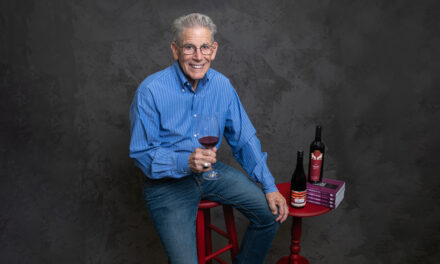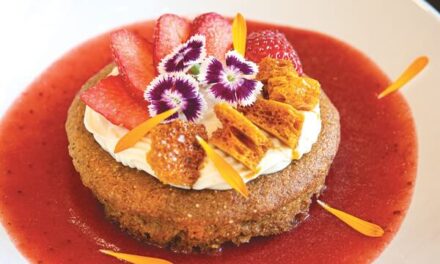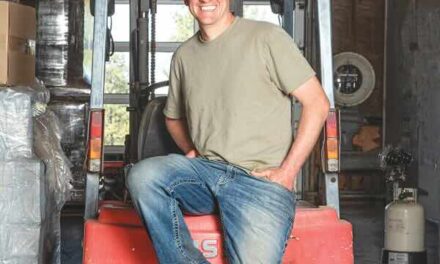Farm Direct
Séka Hills brings Yolo freshness to Midtown
By Gabrielle Myers
Photography By Aniko Kiezel
June 2025
In Midtown, we can enjoy Capay Valley’s bounty without leaving our sycamore-lined streets.
The Yocha Dehe Wintun Tribe’s Séka Hills brand opened an olive oil, vinegar, honey and wine tasting room next to Ice Blocks.
“We’ve had eyes on a more urban location for a while,” says Jim Etters, Séka Hills director of land management. “Sacramento, especially Midtown, has a lot of people who are really interested in where their food comes from. We grow it, we process it, we package it and we take it to the consumer.”
The Midtown shop builds on the success of an original tasting room in the Yolo County town of Brooks. At the new store, I tasted six Capay Valley olive oils. From the mild arbequina to the buttery and delicate taggiasca, to the spicy and herbaceous picual, each oil is sustainably grown on land the Yocha Dehe Wintun are reassuming and caring for in traditional ways.
Séka Hills grows 20 acres of wine grapes suited to hot, dry conditions. Viognier, a mineral and fruity white wine, flourishes in high temperatures. When chilled, it offers a refreshing summer break. The tannat grape is packed with antioxidants and stands up to hot weather. It produces intense and robust red wine that pairs with beef and fatty cuts of meat.
The tuluk’a, which means red in the Patwin language, is a lively and balanced red blend that carries special significance. Patwin is an endangered Wituan language, and the tribe is making an intense effort to bring it back through teaching and sharing curriculum with area schools.
The tribe is buying back ancestral lands and boasts more than 25,000 acres. Sustainably grown crops thrive on 3,000 acres, with 250 organic acres and 2 miles of hedgerows with native plants where insects and pollinators flourish.
Séka Hills aims to grow crops suited for dry, warm conditions—thus the decision to grow olives, which don’t need vast amounts of water. Crop rotations, mulching, cover crops and drip systems enable the tribe to care for the land in a purposeful manner.
“We’ve installed more surface water pumps so that we can reduce the amount of groundwater we pump, and we’ve really seen benefits to the aquifers that have been amazing,” Etters says. “We are at 90% surface water usage, compared to 10% groundwater.”
He adds, “With olives we can get by with almost no irrigation, and the tree will survive and be fine. It may not yield as well, it may not produce as much fruit, but ultimately the tree is not going to die.”
The tribe has almost 800 cattle and employs a grazing program to help manage 12,000 acres. The Midtown tasting room offers prime cuts of flat iron steak, ribeye, ground beef, ribs, roasts, beef jerky and tri-tip.
Wintun cattle don’t eat hormones. “We feed them hay that we grow ourselves. They’re not packed into a tight place and can roam around and do their thing,” Etters says.
Tasting room dishes include Séka Hills beef, vinegars, olive oils and homegrown vegetables, such as asparagus, tomatoes and butternut squash.
The Midtown menu has sandwiches, charcuterie platters, seasonal quiches and flatbreads, pasta salads, soups, housemade gnocchi and meatballs. For dessert, there are olive delights—olive oil ice cream, olive oil chocolate chip cookie skillet and olive oil almond cake.
Séka Hills Tasting Room is at 1733 S St.; (530) 796-0188; sekahills.com. Open daily except Tuesday.
Gabrielle Myers can be reached at gabriellemyers11@gmail.com. Her latest book of poetry, “Break Self: Feed,” is available for $20.99 from fishinglinepress.com. Follow us on Facebook and Instagram: @insidesacramento.



